 Jennet Ingle came to us over the summer with an idea about Musicians supporting local non-profits. She wondered if it would be congruent with our mission of building community. "Of course", we said, "the more people we reach the better!" That was the beginning of Musicians for Michiana , a group of Musicians performing concerts to support 4 non-profits in 2014: Unity Gardens, Hannah & Friends, The Music Village, and Girls on the Run. They are having 4 concerts and the first was last Sunday supporting Unity Gardens. It was a great turnout and great fun, so we would like to thank them. The next concert supports Hannah & Friends and will be held on March 2nd at the Music Village at 2pm. Check thewebsite for more info.
1 Comment
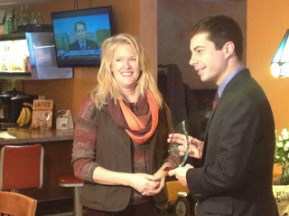 Mayor recieves Unity Gardens Bee Friendly City Award Mayor recieves Unity Gardens Bee Friendly City Award South Bend has been know for many things The Studebaker, Oliver Plow, Its River, and Notre Dame. Now Unity Gardens is proud of our city for something a little bit different. 2 years ago Unity Gardens teamed up with Peace Bees in an effort to put a few hives in the garden. The goal was to increase pollination, and do a little Honey Bee education. With all the bad news in the world about the loss of the Honey Bee it was a perfect time to take some small steps to help the gardens best friend " the Honey Bee" Its was somewhat of a perfect storm. Peace Bees a group with a mission of educating the public on the benefits of the Honey Bee, Tim Ives a beekeeper that looks a beekeeping in a different way going against the grain of traditional beekeeping, and showing extraordinary results. A city on the move to become a leader in the green movement. All this was a perfect storm for South Bend to become a Bee Friendly City. The city ordinance on Bees stated that they were not allowed in the city limits unless you had 5 acres ( a rare thing in South Bend) A a Unity Gardens class on Urban Chickens Councilman Tim Scott, and Vince Barletto were in attendance and the subject of making beekeeping legal in South Bend was brought up. Soon after Vince, Tim and Steve( Peace Bees) were in discussions of how to change the code and make Beekeeping legal in the city. A short time later the law was changed and beekeeping in the city limits is now legal. Moving forward the city has embraced bees and local Honey. The Unity Gardens and Tim Ives have located hives in 3 locations in the city, and plans to install several more in several neighborhoods providing " Honey from the Hood" in everyones "hood". The City and Mayor Pete have been so supportive of our Honey projects we felt it fitting to give Mayor Pete our first " Bee Friendly City Award" In the future we hope to honor area residents for doing their part to make our city a Bee friendly one. So lets all congratulate Mayor Pete.  Winter at Unity Gardens what ever do we do ?. Every year folks say to me and say "I bet its great to have a break in the winter". Oh how I wish that was the case, or maybe not. We stay very busy all winter long sometimes busier then summer. Around November when the outdoor garden winds down I take a little down time, a working vacation. I like to head out to Arizona and do lots of hiking, visit friends, and visit some community gardens. In between all that I work on things like our website, newsletter, and event flyers. I spend much of my vacation time making list of all the things I need to get done (regrouping). The hiking gives me lots of time to think and try to clear some space in my head to get geared up for the next year. By the time the week is through I am ready to hit it hard. We have 2 greenhouses and plenty of work in the garden to do as far as clean up and prep for the next season, and we do it sun rain, cold or snow , and we get it done. I never like to roll into March being behind. To put it into perspective when I get back from my week off its about 100 days until we are planting in the garden again. And everything takes longer when its cold. Our garden classes start in early January. This means going over all the classes I am teaching, and lining up people to teach speciality classes. All this while we are watering, planting, and harvesting in our greenhouse. Everything is harder in the winter. We continue our food waste program which means emptying and cleaning frozen food waste buckets into the snow covered composter. At some point I can no longer drive close to the greenhouse so I make the 200 yard trek through the snow. This year we added Honey from the Hood to our to do list, labeling, and selling honey all year long. The cool thing for me is I love it all, and believe no one has a better life then me.I come home cold tired and sore every night, but I sleep great. 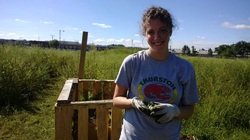 Kelsey is joining the Unity Gardens as an intern to help with fund raising, grant writing, and research as well as work in the gardens, of course. She recently completed her bachelor’s degree at Duke University with a self-designed major entitled Sex and Power: Gendered Relationships. She plans to attend law school and become a human rights lawyer and activist. Eventually, she hopes to work for an organization such as the ACLU or the Justice Department. Kelsey’s background is mainly in the field of advocacy for women. She has worked on issues ranging from sex trafficking in Southeast Asia to dating violence and sexual assault her own college campus. She has experience in the nonprofit world as well as with grant funding processes through the federal government. However, Kelsey is excited for this opportunity to branch out from her expertise and learn about a different kind of nonprofit as well as develop her professional skills while doing good in the community. 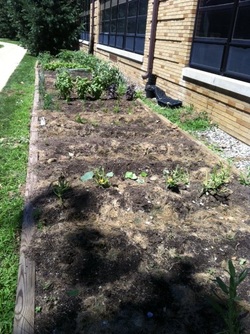 This is a photo of the Unity Garden at Saint Mary's College, located on the south side of Havican Hall. Notice anything strange? I'll give you a hint: it's empty! For the past three weeks I, along with plenty of sad ECDC children at the preschool, have been hard in battle with a ground-hog at both the college garden, and the ECDC garden. This little creature, with it's sweet brown eyes, has been mowing absolutely anything and everything that is not grass! This includes: tomatoes, carrots, radishes, ALL lettuces, kale, collards, green peppers, cabbage, broccoli, cauliflower, and countless flowers. The pesky animal in most gardens has been the rabbit, but I swear to you that a ground hog is much worse: they are hard to scare, they get used to your normal routines, they like plants right after it rains, and they do not give up their unity salads easy. So after a few weeks of research, and much re-seeding I have a few helpful suggestions to those who are unfortunate enough, like me, to have this selfish dinner guest. Easy-Peasy Methods 1. Don't name your pests. It makes getting rid of them hard. 2. Show up and work in your garden at very random times during the day--this will help confuse the groundhog, and the more random you are, the less they can memorize any sort of routine! 3. If you have any pets, let them walk through and around your garden A LOT. Letting them potty around the perimiter will deter ground hogs until the scent washes away. The bigger the dog, the better. Dogs that shed should be most welcome, don't be afraid to scratch and pet your dog as much as possible without straining a muscle, and then sprinkle all that icky hair all around the vegetables! 4. Ground hogs hate stinky things! If you've been hit more than twice it's time to put down things that reek. Some suggestions: peeled garlic, cut onions, moth balls, ammonia soaked rags, epsom salts, urine, ANYTHING that is repungant will work. 5. If putting out stinky things still isn't keeping him away, it's time to spray! If you're organic you can try putting one tablespoon of extra spicy hot sauce into one gallon of water OR buy fish emulsion (which can be found through New Life Soil, or at Lowes). Be sure to spray around and on the plants so the animal gets a big mouthful of nastyness. WIth things like hot sauce and fish emulsion, it is important to know that you will need to re-spray after any rain or heavy dew. If you just aren't too particular about staying completely organic, there are some chemical sprays that are not harmful to plants to deter animals. These can be found at any store with a home and garden section (e.g. Lowes, Meijers, Walmart) and are listed as animal repellants. it is okay to go this route too, but please be sure to follow the directions on the label of what you've purchased before using. If You Gave Everything You've Got...Or You Can't Stand the Stink! Your lettuces are nothing but roots, you can't remember where your carrots are because their tops are gone, your cucumbers are just prickly stems, and you're exhausted: welcome to the Saint Mary's College Unity Garden (just joking). If you are in distress and nothing has worked do not hesitate (let's repeat that: DO NOT HESITATE) to put out a live trap. You can find the St Joe County ordinance on trapping and such here. When trapping and releasing PLEASE DO NOT put a garden-eating animal (such as a rabbit or a ground hog) into another area where people might have gardens, and especially farmland where people make their living on their crops! I wouldn't wish this nuisance on anyone, and coming from a family of farmers, I know they wouldn't aprpeciate it too much. This being said, remember folks that you do not have to re-locate this animal....there are other options for disposing of the groundhog that I'm sure you can think of. For more information about this animal, try googling it. Or click on these links: http://landscaping.about.com/cs/pestcontrol/a/groundhog_day_2.htm http://www.howtogetridofstuff.com/pest-control/how-to-get-rid-of-groundhogs/ http://howtogetridofgroundhogs.com/ http://en.wikipedia.org/wiki/Groundhog Happy Gardening and Harvesting! Ground-Hog Home (inside of the garden bed!) Unity Garden Intern Saint Mary's College Garden Leader 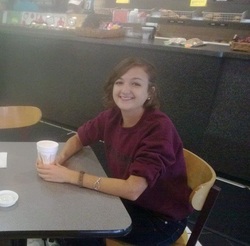 By Carla Geglio When I signed up to be the summer intern for Unity Gardens, I had no idea what I was in for. I remember the night before my first day on the job discussing with my friends what would be the most appropriate outfit to wear, a concern that seems pretty ridiculous in hindsight. Although my mom, the garden leader at the Zion church, is an amazing gardener, I had never taken much interest in gardening. My motivations for interning with Unity Gardens had more to do with the gardens’ mission and role in the community rather than actually, physically working outdoors in the garden. I came in knowing next to nothing about gardening. My first day at LaSalle Square, I was told to put down grass clippings (which keep down weeds and help to retain moisture, by the way!). Although a pretty simple task, I managed to completely invert the process, putting the clippings directly around plants instead of between rows. I remember Sara’s reaction when she saw my mistake was so characteristically positive. She saw it as nothing more than a great teaching moment and showed me how to do the job correctly. Now, entering my 12th week in the garden, not only can I spread grass clippings properly, I can plant most vegetables like a pro, I finally figured out how to effectively wield a hoe, and I can make straight (ish) mounds and rows. This summer, I discovered that I actually like gardening! Especially weeding, to the point that now, whenever I see weeds at the garden or not, I feel a strong compulsion to pull them. This summer, a lot of my friends had internships in offices and research labs, in places like Chicago and Indianapolis, where they had to dress up every day and sit in stuffy cubicles. My internship was a bit different, and I feel like I really lucked out. Although, prior to this summer, I would never have described myself as an out-doorsy kind of a girl, and most definitely not a morning person, I absolutely loved waking up early and heading to the garden for a couple of hours every morning. I picked up skills that I will one day be able to take into my own garden, I found something that I really enjoy doing every day, and, most importantly, I know that all of the hours I put into the garden went toward something I can really be proud of: helping the community and feeding hungry people. Sara, consistently cheerful, and Mitch, the eternal grump, were both so great this summer and made my internship such an enjoyable experience. This fall I am headed back to Purdue for my final semester. Although I am not really sure what the future holds for me, I am sure that I will look back on my last college summer with fond memories of working away in the garden. And Studebagels>Einsteins. Always. 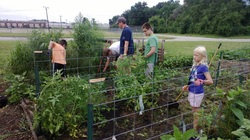 By Laureen Fagen So your garden was going great – lots of beneficial rain and warm spring days that turned to summer heat. The Fourth of July weekend was fun and the break was well-deserved, since most of your planting is done and the weeds are under control. It was even time to enjoy the cucumbers and a few tomatoes. And that’s when it happened, right? The zucchini plants suddenly looked as if they’d been dusted in baby powder. There are some scary-looking spots all over the black-eyed Susans, and mysterious holes in the raspberry leaves. There are filmy webs on the cabbage, and little horned fiends looking well-fed. I hate this, and the reason is because I feel helpless and inadequate and I don’t know what to do. Maybe not about every insect pest or fungal disease in the garden – but enough for me to see a lengthy battle. It makes me wonder sometimes how humans ever grew enough food to thrive, and avoid our extinction. It’s true that you can avoid a lot of problems by catching them early, so it makes sense to walk the garden every day. But then what? Here are a few ideas for diagnosing/treating some plant problems: · Gather all the information you can. What was the weather like? In a spring this cool and wet, there will be a lot more fungal problems. What is the plant doing based on what you’ve seen before? The powdery mildew is pretty common in the cucurbit family – your squash, your zucchini – and the humidity makes it likely, but there’s more than one kind to deal with, too. Ask yourself all the questions first, and then start fitting the plant-science puzzle pieces together. · Don’t be afraid to ask, whether that means asking a friend or double-checking the symptoms with photos on the Internet. Just be sure that you trust the information comes from a reputable source. This is a good way to see what a problem can’t be, too, before you decide on what it is. · Act early. Start removing the tomato hornworms or squash bugs from the plant as soon as you see them. Prune away obviously infected parts of the plant, and keep them out of the compost. Decide how you want to manage the problem and by what method, and then remember what worked (or write it down) because you’re likely to see the problem again in other seasons. Try to remember, too, what you think may have caused the pest or the pathogens in the first place. · Freak out! No, not always. Many plants experience common pest or disease problems without destroying the plant, or even needing much treatment. On the other hand … Freak out! I think that’s a downy mildew on the black-eyed Susans, and it’s a completely different problem than other mildews I’ve had before. The Plasmopara halstedii does infect the rudbeckia, along with other daisy-family flowers, and all of this water isn’t helping. It’s a little late for prevention and I have it in three different beds on two different sites, so feel free to send me your best ideas! I love Laureen's thought on Gardening we all feel overwhelmed at sometime in our garden. I combat garden fatigue in August by refreshing my garden. I start tearing out stuff that has died or is going to seed and replant . Here are a few links to guides for fall planting Planting Chart From Natures Crossroads Purdue Fall Planting Guide Happy Gardening Mitch 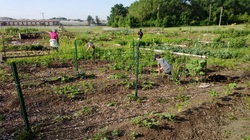 So the last week has had its up and downs. As a precaution Unity Gardens test all of its sites for lead, and if it in a area of concern we have a full panel done. In the past 5 years we have only had one garden not pass. This week we had a 2nd garden. While the levels were below what the EPA would consider unsafe to grow in we did not want to take any chances. But it got a little news coverage and got me to thinking about spending some more time teaching people about safe garden practices. We do teach some classes in the winter and touch on soil safety, but this just presents another chance. So should you be concerned ? First know a little history of the lot you are growing on. Is it an old dump site, or a site where a house burned down.? Old cars leak toxic chemcials into the soil, and fire ruble can contain all sorts of things. If your house is pre 1978 and has been painted with lead paint the soil could have lead in it. This is not meant to scare people off from gardening most areas are safe, but if you have concerns it does not hurt to check. The best place to start is the health dept. here is a link to the St Joe Co Website . There are some ways you can make your garden safer. Raised beds, and mulch in between the beds goes a long way. Most of the exposure to lead is from dust that gets on the food. Washing your food in the garden and then again in the home can also help. Check out this Soil Safety PDF Happy Gardening 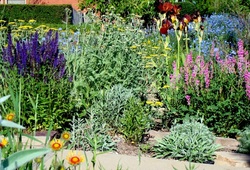 By Laureen Fagan With all the interest in beekeeping and a potential urban beekeeping ordinance in South Bend, it’d be easy enough to think that bee talk is just for the apiculture enthusiasts. But many people can “keep bees” and support bee populations through the gardening plants they choose and practices they use. By now, most people know why it’s important. Bee populations are suffering from mysterious fatal conditions that include colony collapse disorder, with losses upward of 30 percent. It’s a worldwide problem – and it’s your problem, because according to a 2010 United Nations Environmental Programme report, bees pollinate about 71 percent of the top 100 food crops grown around the globe. I’m not interested in beekeeping. I don’t want hives in my yard. Frankly, I’d like to have the suit just for the mosquitoes sometimes! But I do garden to support bees, butterflies and other beneficial insects, and here’s a few ideas for how you can be a “beekeeper” at home in the yard, garden – or even balcony. 1. Choose plants that attract and support bees, and plant so that there’s always something in bloom that’s providing nectar and pollen. Consider native plants – at home, the bees love the spiderwort and sunflowers. Also consider herbs and small fruit in the garden. My strawberries and raspberries love the bees, and the bees love them. Leave your milkweed for the beneficials, and don’t forget to think about your lawn as a “beekeeper” too. That’s a lot of clover for the bees. There’s a great resource for bee-friendly plants in the Great Lakes region atxerces.org 2. Limit the use of insecticides. Lots of people are talking about the neonicotinoid use in U.S. agriculture, but some home products – carbaryl (Sevin) as one example – are highly toxic too. 3. Create a nesting habitat and provide shelter for bees. “While most people are not equipped to raise honeybees in their backyard, creating nesting habitats for native bees is surprisingly simple,” say the experts at University of Illinois. And don’t forget the H2O. Bees and butterflies drink too, and during hot dry spells may need help finding water. 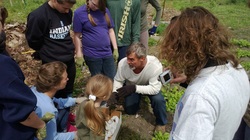 wow .... So its Saturday May 25th at the LaSalle Square Unity Garden. I arrive about 7am ( late for me ) . One of or neighborhood gardeners Kevin is already there and has let the chickens out while he works on a flower garden project. Its about 8:30 and Gabby with WNDU is coming out to do and interveiw at the same time St Joe High students will be arriving to work in the Garden. Sara is off helping Henry Davis get his Unity Garden started. Chuck the Homeless man that lives in the woods stops by to chat with Gabby. Justin Joy the St Therse garden leader is there to pick-up tools and plants. We get through the first interveiw, and I decide to let Gabby interveiw the St Joe students for part 2 . Its about then the guy arrives to pick up pallets. Amy, Jim , and Cara showup to get ready for the Kids Club at 10am. Meanwhile Mike has showed up to work on his area. Dave and Brooklen ( new volunteers) show up to work , Cara gives them the tour, and Mike puts them to work. Sara arrives back to Meet the woman from AEP to sign a contract for or solar power usage meter. She has brought her grandkids out to see the Chickens and Bees . That means its 11:30 and Steve is ready to start his Beekeeping class. Next the Boy Scouts show to drop off some rain barrels they made for the garden. The day like every Saturday is such a blur. About 150 people passed through the garden. They planted, the learned, they made friends. All these people from all walks of life, with diverse backgrounds, and diverse interest all together. This is a community !! |
ContributorsWe love to feature blogs from all of the members of our team, including core staff, interns, volunteers, and others. We hope you enjoy the stories and find the information useful! Archives
January 2023
Categories |
AddressLaSalle Square
3701 Prast Blvd. South Bend, IN. 46628 |
Hours
Garden: always Welcome Center Mon, Tues, Thurs, Fri: 9-5pm Wed: 9-7pm Sat: 9-4pm Sun: CLOSED |
Telephone574-222-2266
After Hours: 574-315-4361 |
Unity Gardens
PO Box 10022 South Bend, IN. 46680 |
Contact: Sara Stewart, Executive Director
sara@theunitygardens.org 574-315-4361 |

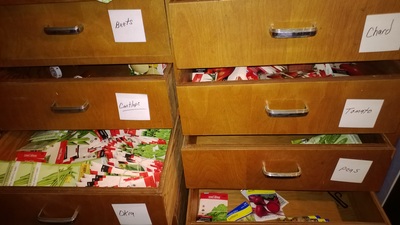
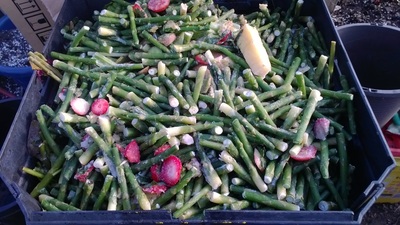
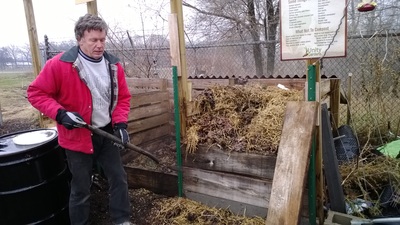
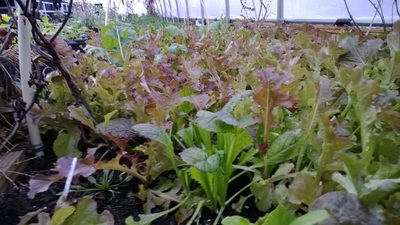
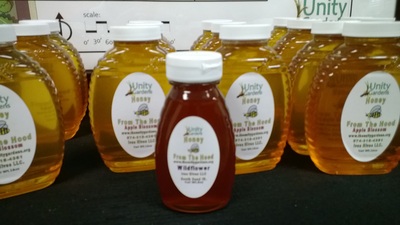

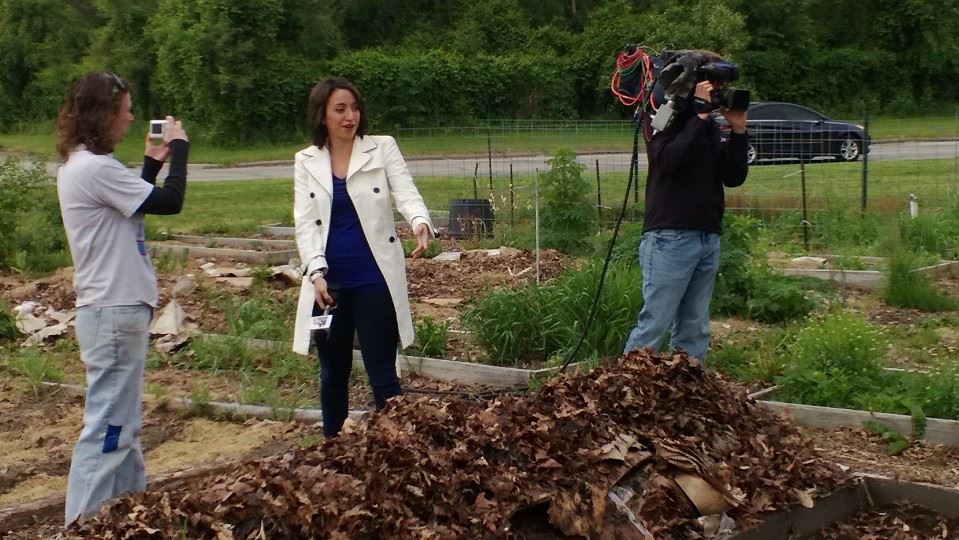
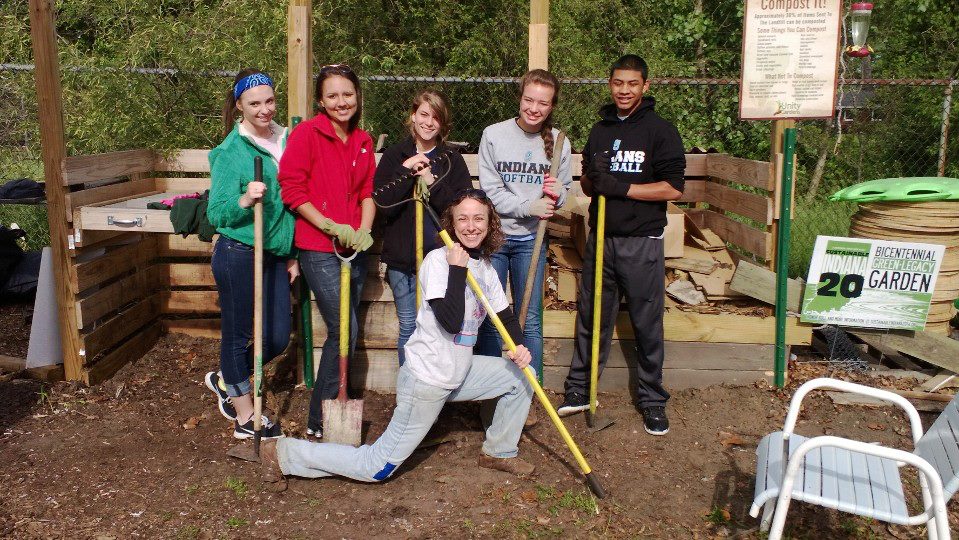
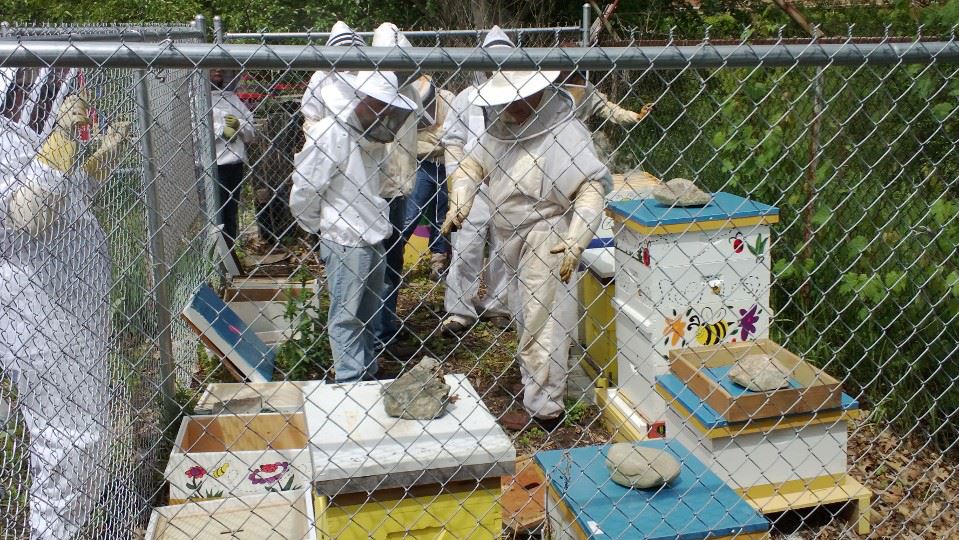
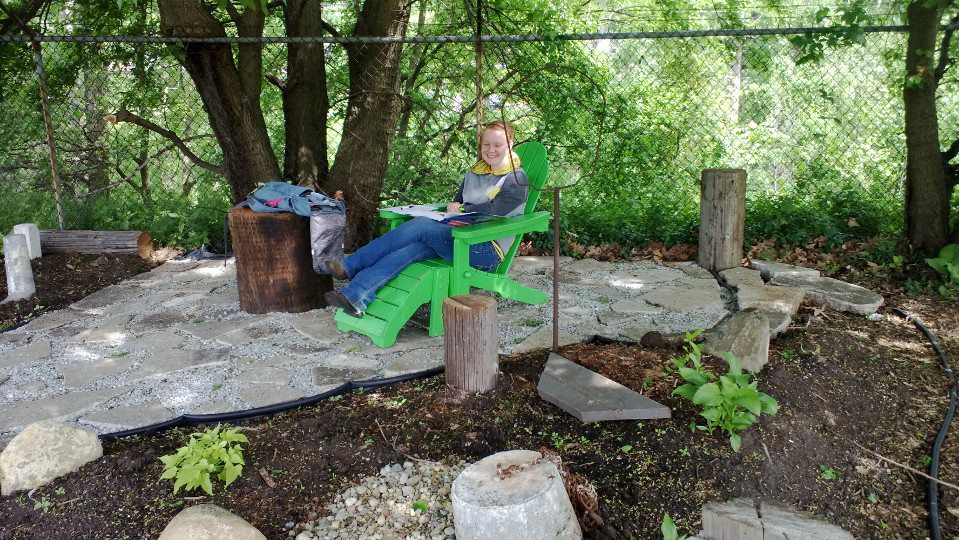
 RSS Feed
RSS Feed